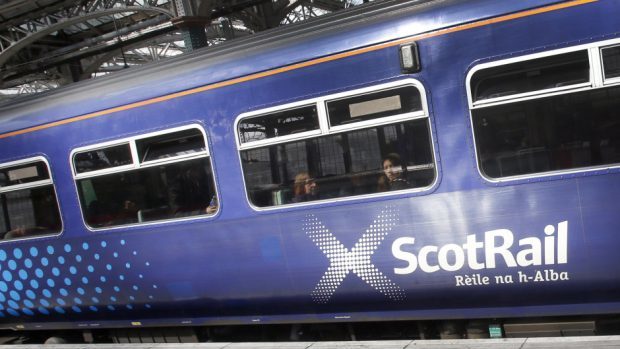Train fares will go up by an average of 2.3% next year, prompting claims passengers are being priced off the railways.
Industry leaders announced the increase, the largest in three years, yesterday and it will take effect from January 2.
The Rail Delivery Group (RDG), which represents train operators and published the figure, said it is based on fares across Scotland, England and Wales.
But the Scottish Government, which reserves the right to step in, insisted “no final decision” had been taken on prices north of the border.
The Press and Journal understands passengers will see increases on the ScotRail system from Monday for tickets for next year.
But should the Scottish Government decide to intervene to reduce fares, measures are in place to refund the difference for certain passengers buying in advance.
Scottish Labour last night reiterated its call for a rail fare freeze amid growing criticism of the ScotRail service over delays and cancellations in recent weeks.
Transport spokesman Neil Bibby said: “This makes it even more important that SNP ministers back Labour’s plan for a fare freeze in 2017.
“After months of disruption on the rail network, passengers in Scotland deserve a break.
“People are fed up with overcrowded, delayed and expensive trains and it would be insulting to ask passengers to pay for more for the service they are currently receiving.”
Public transport campaigners also criticised the rise.
Lianna Etkind, of the Campaign for Better Transport, said: “People are now finding themselves priced off the railways.”
Rail, Maritime and Transport union general secretary Mick Cash described the fares announcement as “another kick in the teeth for British passengers”.
He said the increase meant they would continue to pay “some of the highest fares in Europe to travel on rammed out and unreliable trains”.
The average increase in fares is the highest since January 2014, when prices rose by 2.8%.
Paul Plummer, chief executive of the RDG, which also represents Network Rail, said operators “understand how passengers feel when fares go up” and accepted that in some areas they “haven’t always got the service they pay for”.
But he added that around 97p in every pound paid by passengers goes back into running and improving services.
A Scottish Government spokeswoman said: “No final decision has been taken on next year’s fares in Scotland and we are looking at options before the end of the year.
“We want to see a vibrant, growing industry with more seats and services than ever before and that is why we have taken action to help keep fares down.
“Regulated ScotRail fares increases are capped at the level of the Retail Price Index (RPI) and off-peak regulated fares increases capped at 1% below RPI.”
On calls for a fares freeze, Nicola Sturgeon has said she will consider any fully-costed options that could reduce costs to passengers while still delivering her government’s infrastructure programme.
